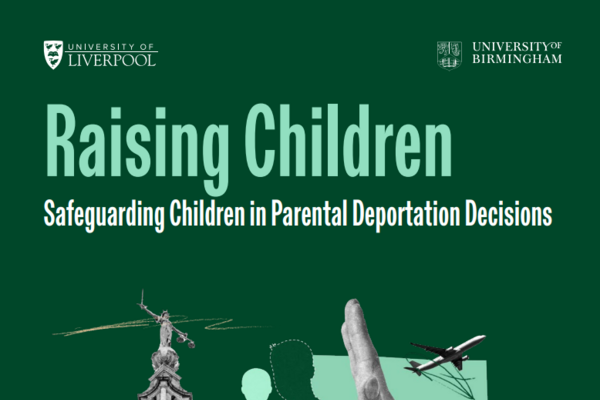Today on Human Rights day we want to draw attention to the 24,000 people who are annually deprived of their right to liberty in the UK. At present, Judicial Review and the Human Rights Act are the only legal instruments by which they are able to challenge their detention. We are very concerned about vaguely worded attacks on these in the Conservative manifesto and how this could shape the future of immigration detention.
The Home Office has become a law unto itself and the nation woke up to this during the Windrush scandal. It has very wide powers of detention and deportation. We are wary of proposals that would further remove checks and balances and release it from the constraints of judicial scrutiny.
The plans laid out in the Conservative Party manifesto to review the Human Rights Act and judicial review (challenges brought before the High Court) makes for chilling reading. They promise to ‘update’ the Human Rights Act to ensure ‘a proper balance between the rights of individuals, our vital national security and effective government’. Though vague, this suggests that human rights will be watered down or qualified.
The Human Rights Act was the subject of sustained attack from both previous Prime Ministers. Both wanted to scrap it altogether and floated the idea of a ‘British bill of rights’. Theresa May famously used a spurious claim about a pet cat preventing deportation to attack the Human Rights Act. The fact that the proposals are now more ambiguously phrased in the manifesto does nothing to reassure us that the attacks on Human Rights would be any less severe under a Conservative government.
The government should not need reminding that human rights are fundamental principles that should not to be needlessly sacrificed. We provide legal advice and representation to people in immigration detention. BID clients are locked-up without trial or time limit in appalling conditions in Immigration Removal Centres. For many, the Human Rights Act is a crucial safeguard in a system that is otherwise weighted against them at every stage of the process.
UK caselaw shows that a person’s article 5(1)(f) rights (relating to immigration detention) are breached if a person’s rights under our common law (the Hardial Singh principles) are also breached. The way that is assessed is via the mechanism of judicial review, which is also subject to vaguely drawn attack in the Conservative manifesto. It proposes to ‘ensure’ that judicial review ‘is not abused to conduct politics by another means or to create needless delays’.
Judicial review is a vital tool to hold the government to account and, for many of BID’s clients, it is the only means by which they can challenge their wrongful and unlawful detention. The government is consistently found to be breaking the law in immigration detention – it pays out £4 million per year in wrongful detention as a result of claims brought forward under judicial review. Following the removal of appeal rights in the 2014 Immigration Act, judicial review is now the only recourse to justice for many people who have been wronged by the immigration system. Crucially, it is the only way for people to urgently challenge enforced removal from the UK. We believe proposed reforms to judicial review risk reducing its role as a lifeline in immigration cases, against a background of an increasingly hostile environment.
Judicial review is also used to bring systemic challenges to particularly pernicious Home Office policies and practices. Recent policies found to be unlawful include the government’s policy of deporting EU national rough sleepers for supposedly failing to exercise treaty rights; the‘deport first appeal later’ policy; the government’s unilateral narrowing of the definition of torture; the failure to hold a public inquiry after the G4S abuse at Brook House detention centre revealed by Panorama; and the meagre support and subsistence provided to victims of trafficking. Only last week the Supreme Court found that the government’s policy of detaining asylum seekers facing removal to other European countries under the Dublin convention was unlawful. All of these successful challenges to government policy were brought through the mechanism of judicial review.
We have been here before. In 2013 the government planned to reform judicial review, arguing that unmeritorious applications for judicial reviews had placed a burden on public services. In its consultation on the proposals the government offered a highly partial characterisation of judicial review, focusing on the inconvenience caused to the executive while ignoring the benefits of judicial review to individuals, to the maintenance of the rule of law, and to society at large. The government claimed that judicial review is abused by migrants and that many cases are refused. However, official figures do not back up this argument. While many unrepresented applicants may not succeed with their cases, in a large number of cases the government agrees to settle. Many of the unlawful detention cases where the Home Office agrees to pay damages are settled before a full-hearing (with the applicants made to sign non-disclosure agreements).
BID responded to the government’s consultation at the time and the plans were eventually dropped. Reforms to the Human Rights Act have also been resisted thus far. It is therefore very alarming to see fundamental rights and constitutional principles once again being used as a political football. We should be very afraid.









